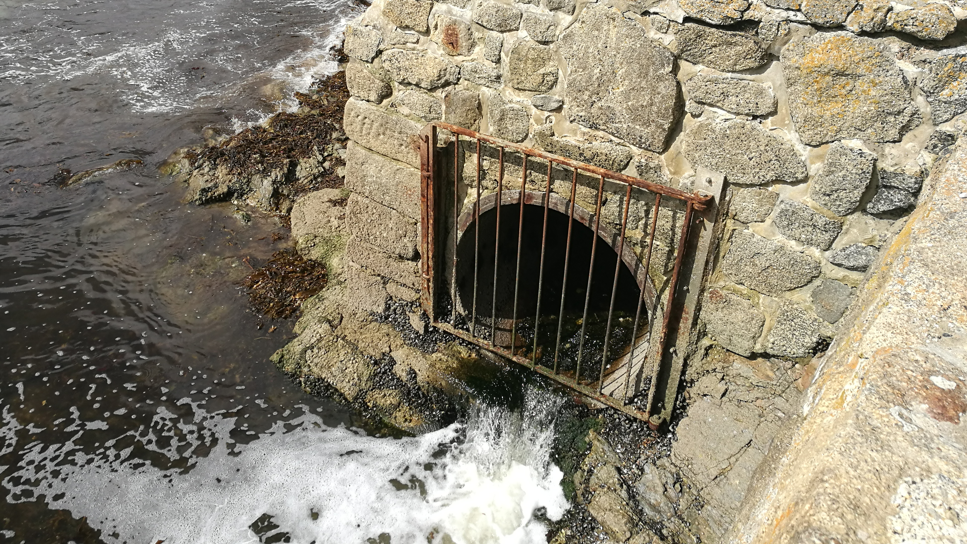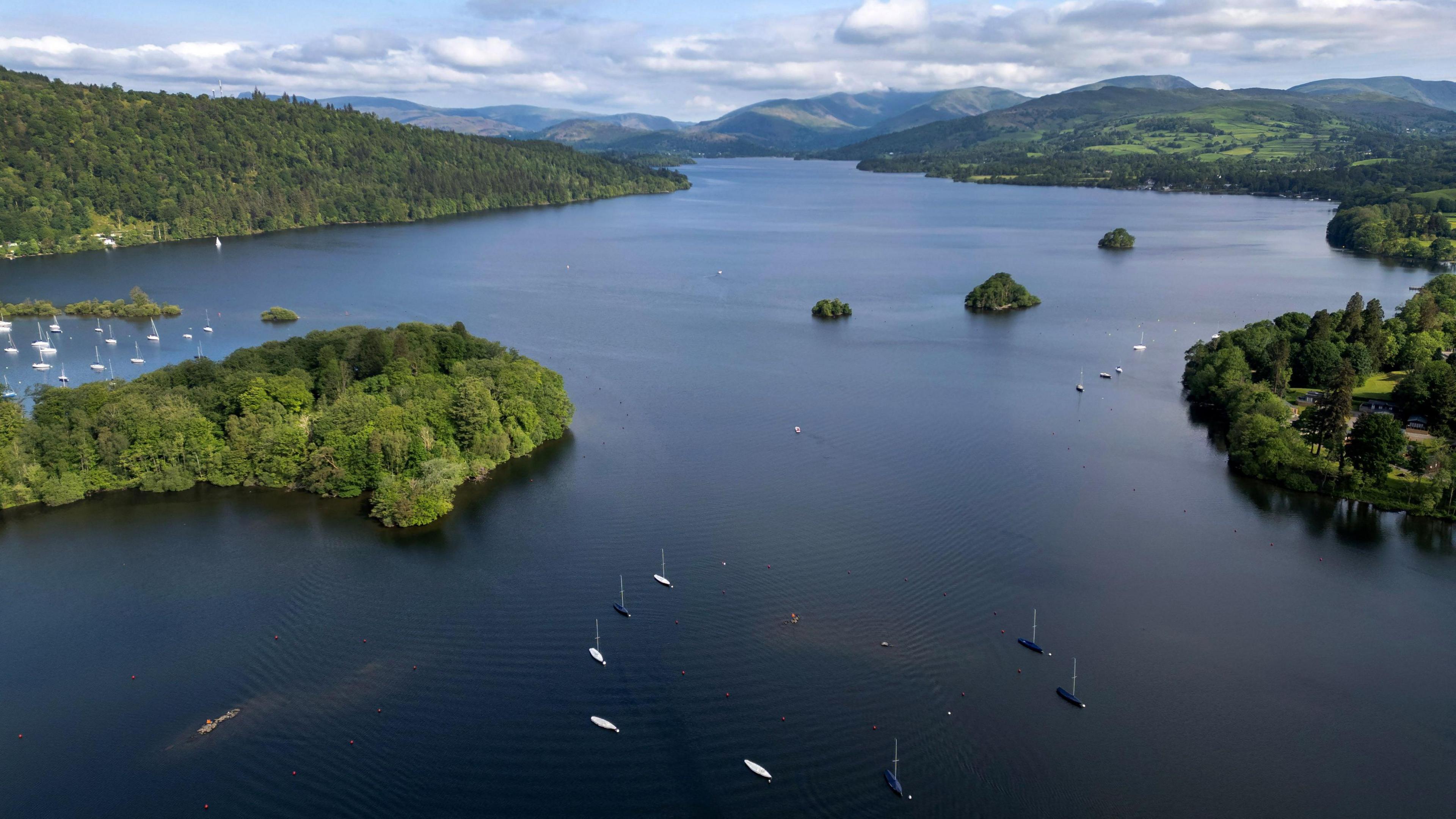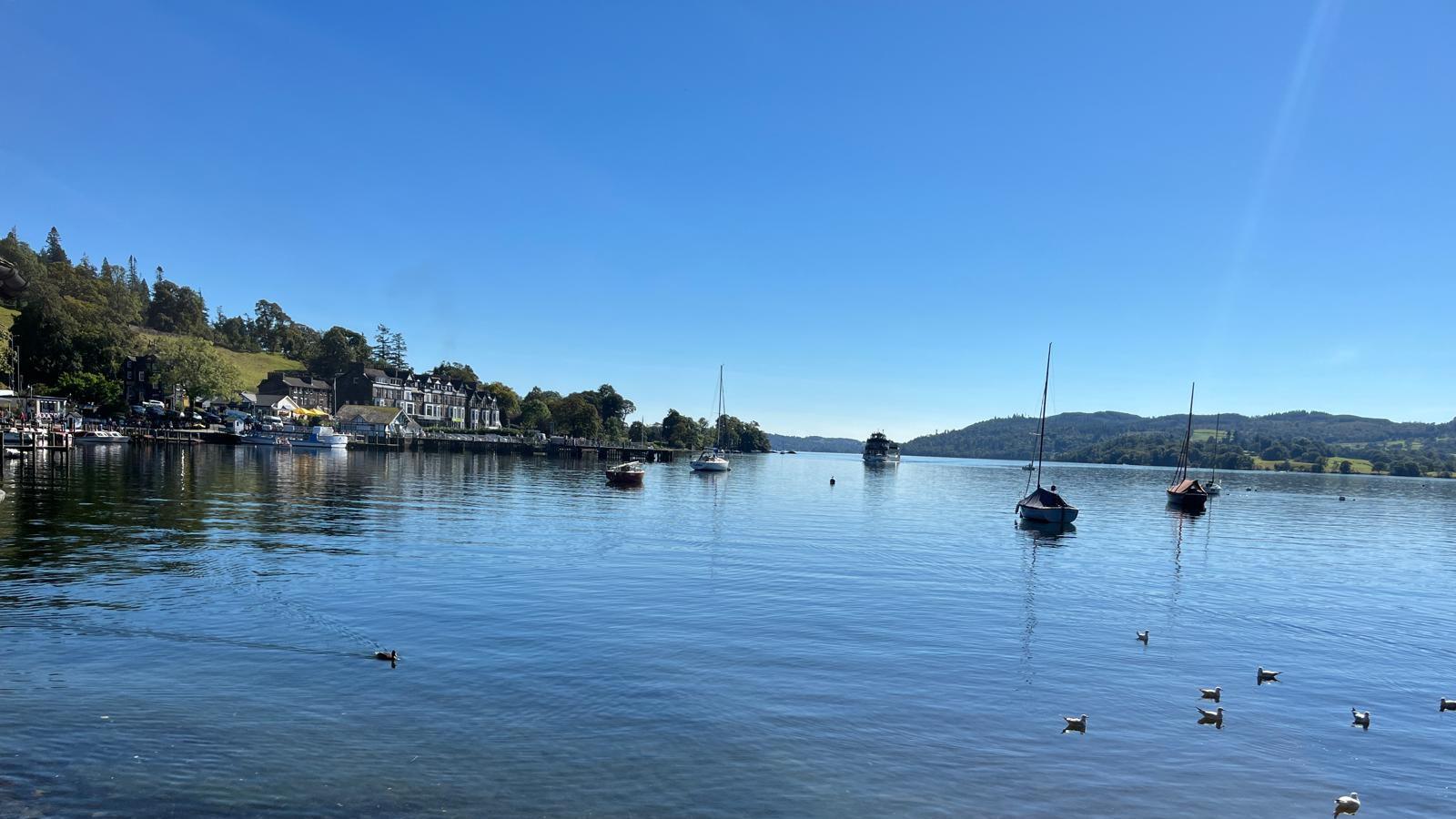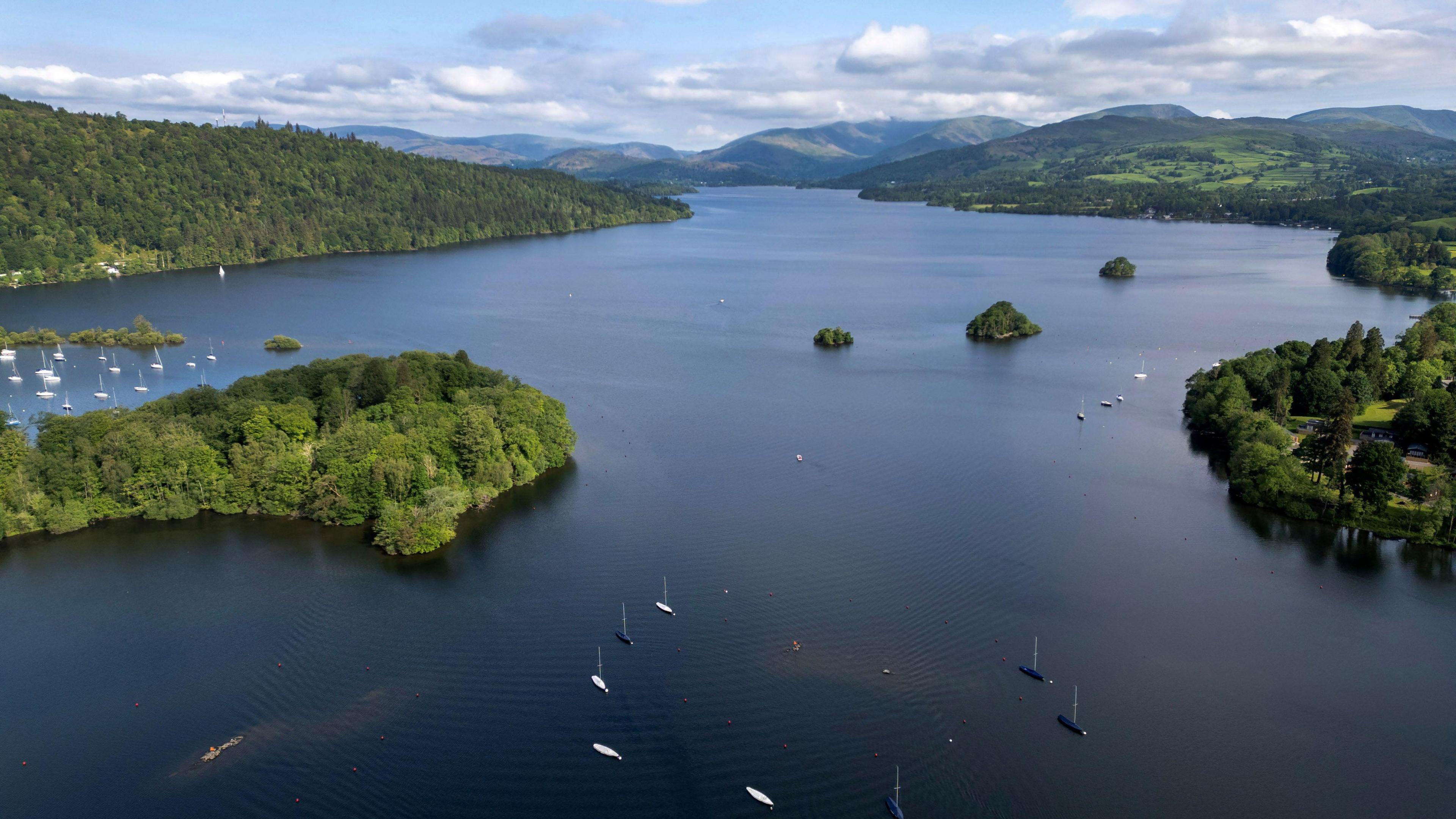Calls for overhaul of sewage discharge recording

Water companies are allowed to release untreated sewage to relieve pressure during heavy rainfall
- Published
Campaigners have called for changes to how sewage discharge is recorded.
Water companies currently only have to record how long sewage is pumped into rivers and not how much is released.
Professor of Stable Isotope Geochemistry at Durham University, Darren Grocke, said without this information it was difficult to accurately understand the "environmental damage being caused".
The Environment Agency (EA) said it was transforming its approach to water industry regulation with additional officers and inspections.
The call comes after sewage was continuously discharged into Windermere, in the Lake District, for more than seven days.
Water companies are allowed to release untreated sewage into rivers and seas - storm overflows - when it rains heavily, to prevent homes being flooded.
'Lack of transparency'
Prof Grocke said "a spillage hour might equate to 10 litres of discharge or it could relate to 1,000 litres".
"Without this information it is difficult to accurately understand the environmental damage being caused," he added.
United Utilities has promised to cut sewage spills into Windermere, and had previously announced millions of pounds of funding to tackle the problem.
Founder of the Save Windermere Campaign Matt Staniek said talking about reducing the number of spills was "totally meaningless".
He said there was a "lack of transparency" with the way the data was collected.
The EA said continuous water quality monitoring of upstream and downstream discharges from sewage treatment works and storm overflows would be introduced in 2025.
There will also be a requirement for companies to publish data on the frequency and duration of discharges from storm overflows, the EA said.
Follow BBC Cumbria on X, external, Facebook, external, Nextdoor and Instagram, external. Send your story ideas to northeastandcumbria@bbc.co.uk
- Published23 October 2024

- Published18 September 2024

- Published29 August 2024
